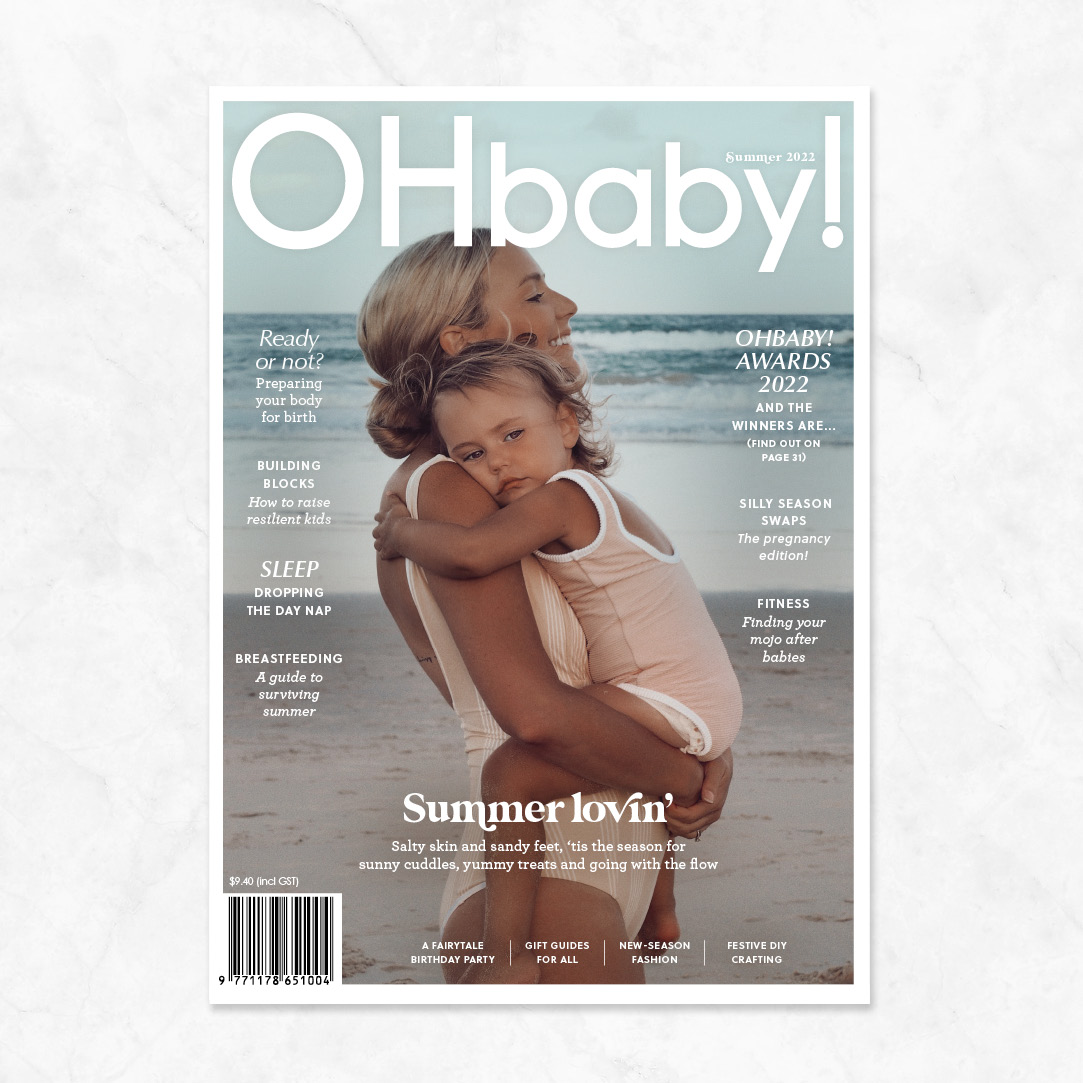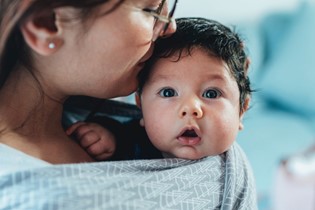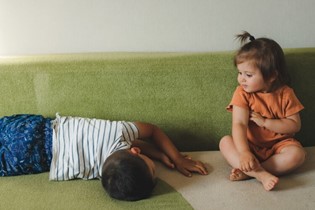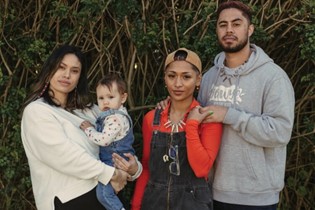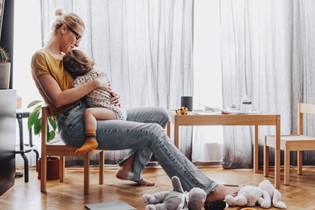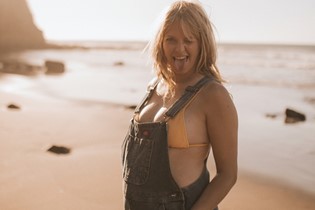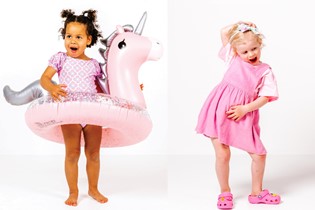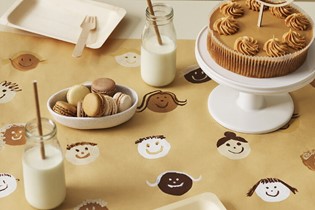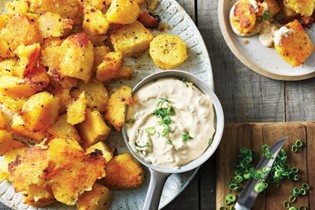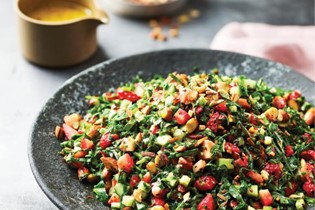Why it's important for us to change and adapt as parents
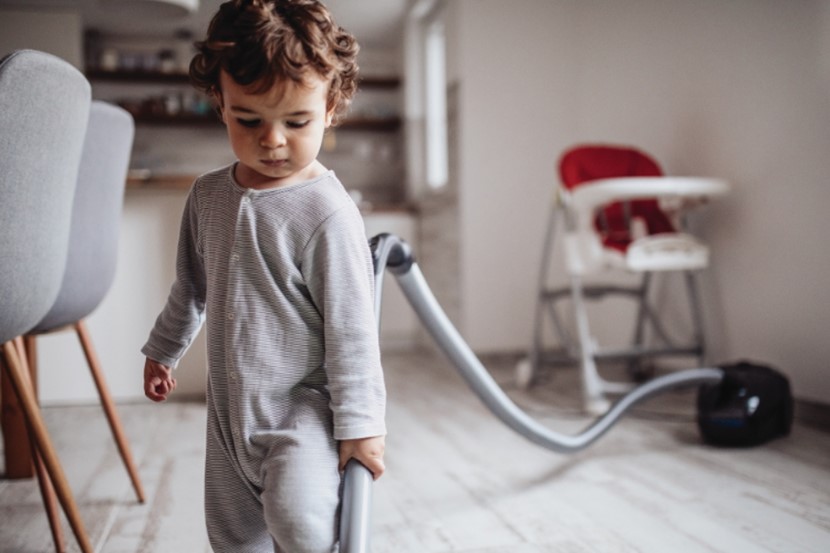
As our children grow, change and become more capable, there's an invitation for us too as parents to gently move with the times. Miriam McCaleb shares how and why.
We raise our children, and they raise us. The day we all met – our babies were brand new humans, and we were brand new parents. We all had so much to learn, as we observed one another, learning from each other as we wove a relational web between us. Over time, we developed the habits that helped us to feel settled. It is not only babies who need to feel settled, after all. These habits might have been conscious, or they might have formed in a fog of anxious exhaustion.
Some of our habits can be like a 'lucky red sock' sort of thing. If it so happened that the first time your baby slept for more than five hours, you had sung them a certain song at bedtime – well, let’s just say it can be pretty tempting to apply magical thinking and think it was all about the song, and nothing but the song – and now that is the only thing that will do at bedtime, which is fine. Some rituals are beautiful and worth keeping, and only you and your family get to decide how it all works for you. I guess I’m encouraging a stocktake – an inventory of the various habitual patterns and ways of being together. Do the rituals and routines still serve your child, and your family? Do the family’s habits serve you?
I’m the first to admit that my heightened emotions around early sleep made me just a smidge neurotic. It's true, I may have been more insistent on the location of a certain knitted fox than my child ever really needed me to be. Was it really worth the angst? Exhale, mama. Trust yourself, trust that baby. And trust that you both have the skills to adapt, together.
Next thing you know, your infant is a toddler, is a preschooler, is a big kid. Unquestioningly continuing with the patterns of early parenthood can lead to some downsides. Maybe it’s unnecessary: the time spent searching for knitted foxes that (be honest) you’re the only one missing? Or perhaps it’s looking up and realising that time is zooming – your baby is no longer a baby, and has never developed the habit of thanking people at appropriate times. Yikes!
Over time, we are well advised to notice how much more our children are capable of doing as they grow. From putting their own grubby socks in the laundry basket when they’re toddlers, it is a slow and steady transition through various developmental wonders – doing and undoing their own buttons, tying shoelaces, packing their own backpacks. Slow and steady.
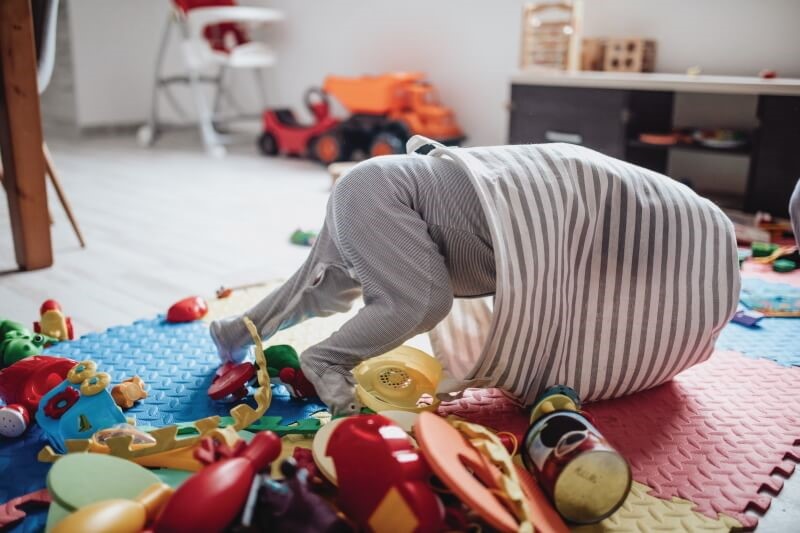
As children’s skill sets grow, we serve them well by allowing them the time and trusting them with the responsibility to start pulling their weight. Especially because by then you’re likely to be losing hours to ferrying kids all over the place. It helps if the kid you’ve just driven home from swimming has the good grace to put their own wet togs in the wash.
This slow and steady skill upgrade that both children and parents undergo applies to more than just the practical. Housework matters, and that’s the truth. Raising someone who understands that lunch isn’t finished until their plate is in the dishwasher is noble work! But it’s also worth mentioning how valuable it can be to check in with your family’s habits in other domains. Sometimes, the behaviour that was cute in a preschooler can seem pretty rude in an older kid, and parents might like to check in with their expectations of their children. People enjoy being around others who know how to behave with consideration for other people. Manners matter. “Thank you for dinner” is the bare minimum, and can be communicated nonverbally, if necessary!
Our families see the best and worst of us – the warts and all, as they say. This is why it can be so humbling to tune into our habits and tendencies, and to check in with whether it’s time to reset some dials around expectations of one another. Here’s my hot tip for getting three year olds on side if you’re slowly increasing expectations – it’s all about 'The Rules'. Because kids around this age are becoming aware that the hierarchies of the world extend even beyond the omnipotence of their parents, call on the mysterious Rules. Even Mum is outranked – by the Police, the King, or Santa Claus. So some things (brushing your teeth, wearing your seatbelt) are simply 'The Rules'. These things simply ARE. The Rules are bigger than Dad. Even bigger than Nana. These. Are. The Rules.
It's nice to remind one another to witness our children’s emerging competence, and to trust them with slow (teensy!) increases in our expectations. We might not mind if a four year old visitor forgot to thank the host for having them, but be unimpressed if that wasn’t happening by age eight.
We learn new parental skills and possibly confront our automatic tendencies when we notice the changes in our children, when we witness the ways that they move through the world. There is certainly room for growth and learning when their behaviour reflects the bits of us we might like to deny. Friends, I can be a pretty grumpy gal sometimes, so it shouldn’t surprise me when my kids growl back. This is my cue to do a little growing of my own, to accept the need to keep practising a kind voice, even when I’m tired. To acknowledge to self and others that I am still a work in progress, just like the tamariki. The learning doesn’t stop, and we have never fully developed a set of parenting skills. It’s like the laundry – it never ends!
Our kids keep changing, and so should the way we respond to them. The need for knitted fox friends at bedtime might not last, but our love for these beautiful, messy, cuddly sweethearts goes on and on.
Miriam McCaleb is a mum, writer, gardener and finder of lost toys. Visit her at baby.geek.nz

AS FEATURED IN ISSUE 60 OF OHbaby! MAGAZINE. CHECK OUT OTHER ARTICLES IN THIS ISSUE BELOW
